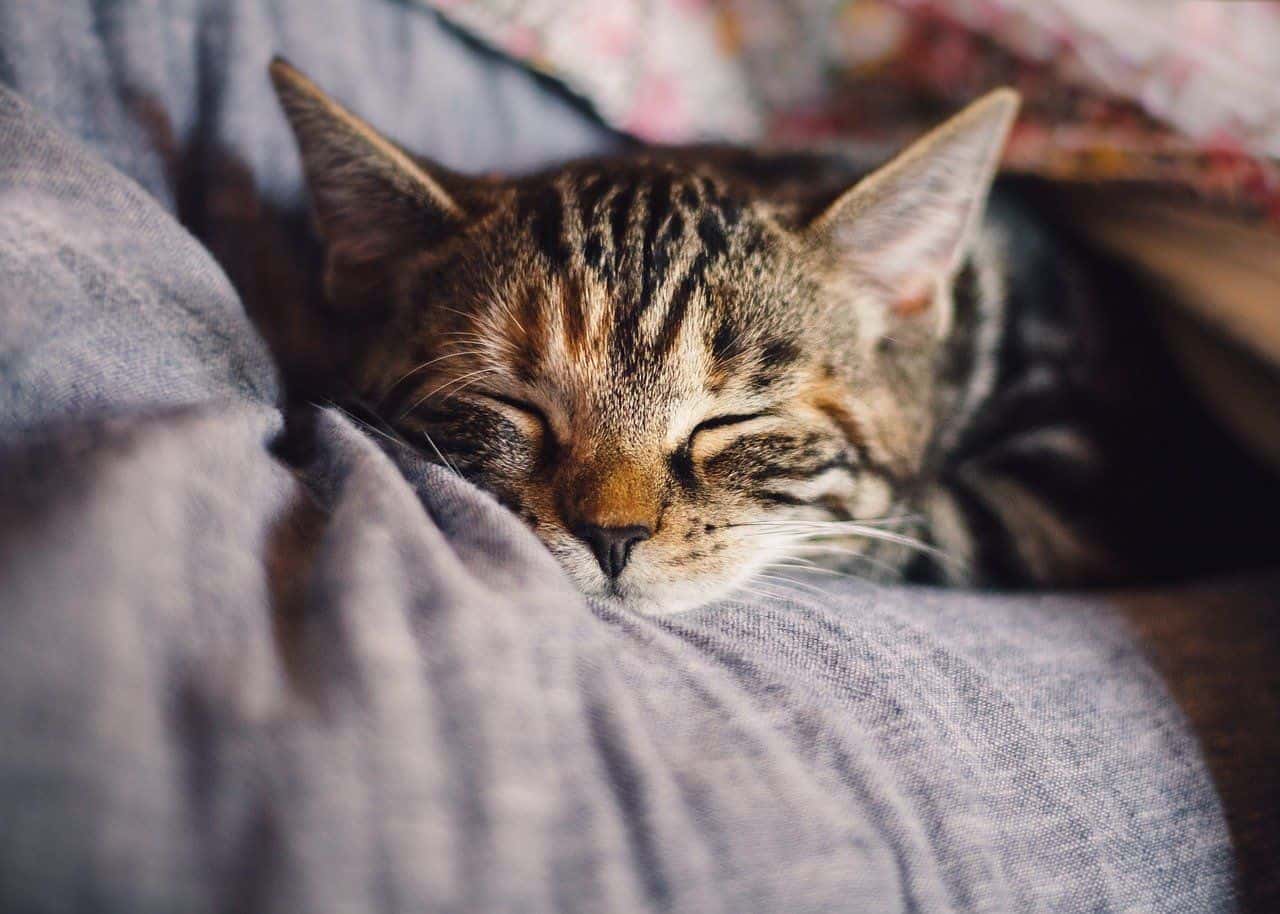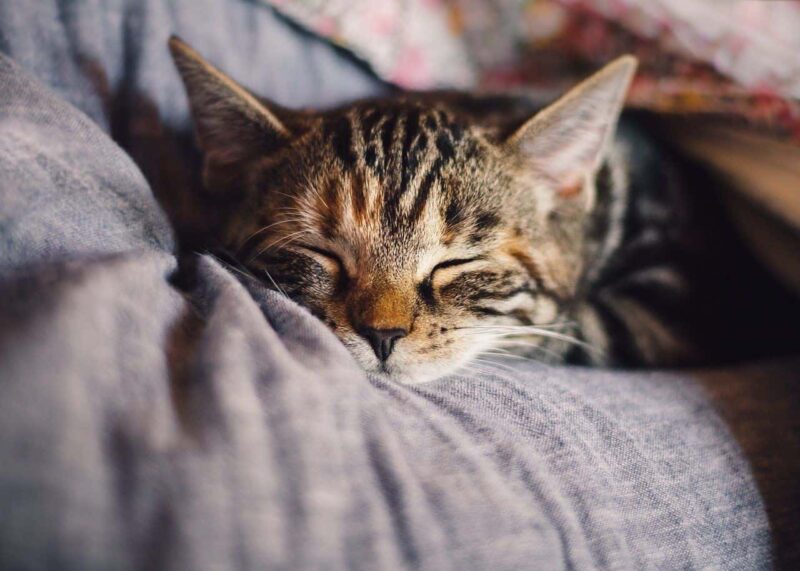While cats are mostly nocturnal, many of our furry companions like to match our schedules to spend more time with us. If that sounds like your cat, where should they sleep? And what are some tips you should follow?
We’ve highlighted some tips for setting up their sleeping area for you below.
Top 7 Tips for Setting Up a Cat Sleeping Area
If you’re trying to find the perfect area for your cat to sleep at night, there are a few things you can do to help them out. We’ve highlighted seven great tips you can follow to help your cat get a little more sleep.
1. Set Them Up High
Cats love high perches, so if you’re trying to set them up with an area to sleep at night, you’ll want to add some height. Find some spaces up high throughout your home and see if you can’t set their beds there. This can be with a tall cat tower, or you can make use of other higher elements in your home.
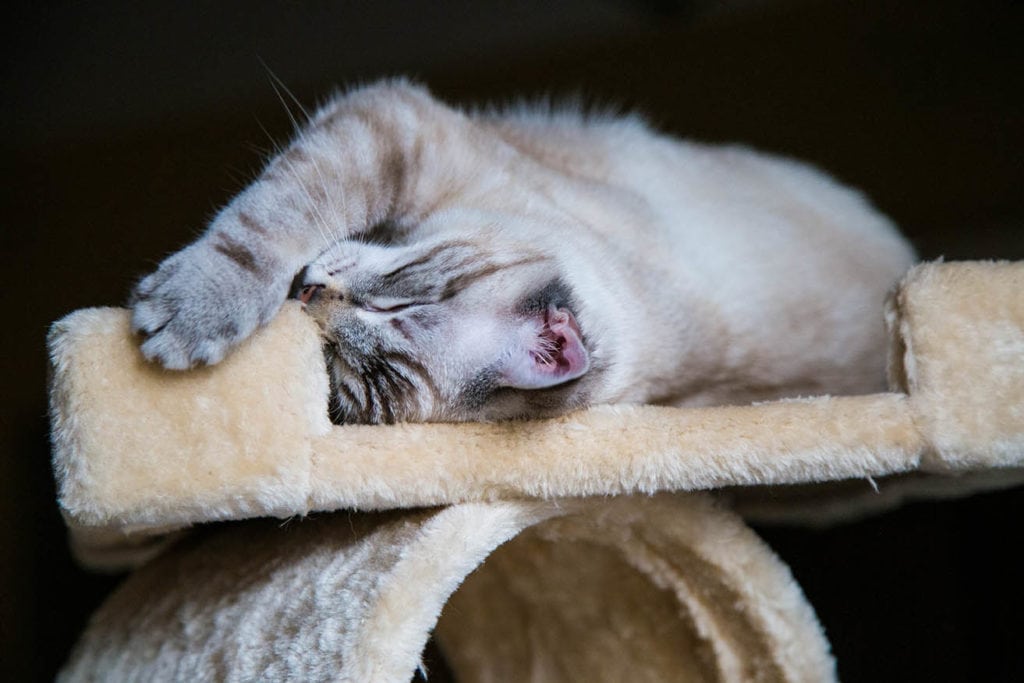
2. Give Them Options
Cats like having different areas to sleep in, so if you only set them up with one area to go to bed, you’ll find them sleeping in other areas all the time. But if you can set them up with several options, they’ll be more likely to choose one of them to use.
3. Consider a Cat Bed
While you don’t need a cat bed, and your cat might not use one, having one or two strategically placed in your home is a good idea. Cats love insulated and soft spaces, so if you put the bed in an area they like, they should use it.
Cats sleep away majority of the day so finding a bed thats supportive, warm and secure is key. Most cats find the modern design of the Hepper Nest Bed irresistible making it a practical option if your looking for a rest spot your cat will use consistently. Its supportive and caters to felines of all ages, sizes and ailments. The portability means that your cat can nap wherever you go - your desk, couch, side table or even your bed. Learn more about the heavenly Nest here. At Catster, we’ve admired Hepper for many years and decided to take a controlling ownership interest so that we could benefit from the outstanding designs of this cool cat company!Our Favorite Cat Bed
4. Find Low Traffic Areas
When cats are sleeping, they don’t like people constantly waking them up, and if people do, they will try and find a different place to sleep. So, if you have a quiet area where you can set their beds up, it’s more likely that they’ll come back to use it again.
5. Give Them a View
Cats like watching the world around them, and sometimes they’ll laze around before they fall asleep. If you give them something to look at and enjoy before they fall asleep, they’ll be more likely to use that bed again in the future.
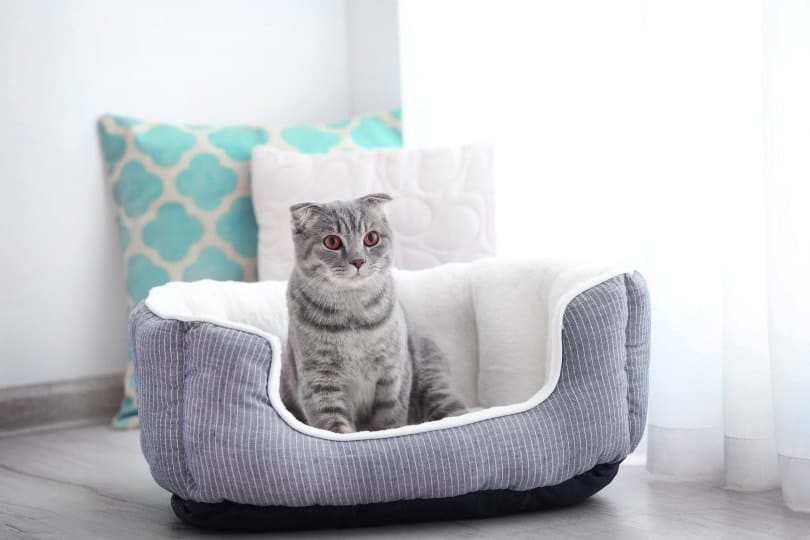
6. Make It Comfortable
Everyone wants a comfy place to sleep, and your cat is no exception. Give them a soft place with plenty of insulation and try to keep it away from drafts. The more comfortable you make it for them, the more likely it is that they’ll come back and use it again.
7. Give Them Hiding Spots
Cats can be a bit timid, and when they’re trying to sleep, they can feel especially insecure. Giving your cat a few hiding spots where they can cuddle up and go to sleep and not feel like they’re on full display makes it more likely that they’ll use that spot.
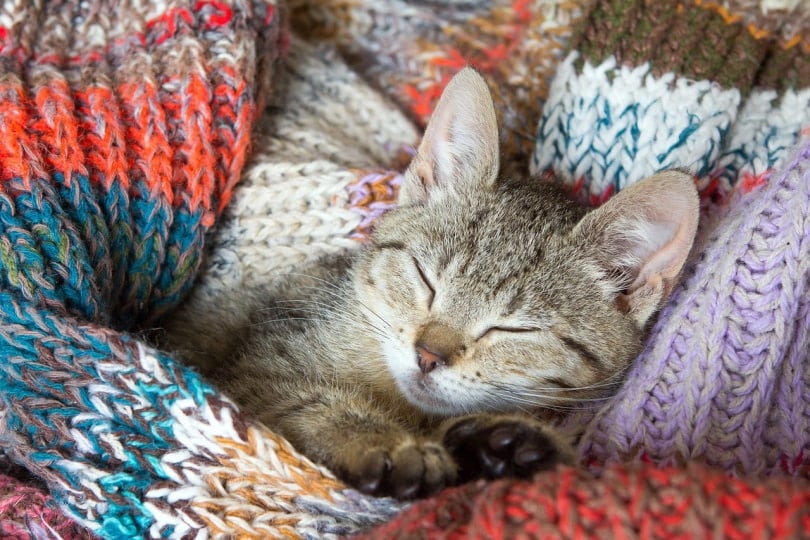
Should Cats Sleep in Your Bed?
Cats are social creatures, and you might find they want to sleep in your bed. If that’s the case, there are pros and cons to letting them sleep in your bed. There are emotional perks to letting your cat sleep in your bed, including an increased sense of security and emotional well-being.
However, there’s also a fair risk of physical health concerns it can cause. Some of these concerns include potential parasites and breathing issues. It’s up to you to balance the potential pros and cons and make the best decision for you and your cat!
Final Thoughts
Now that you know a little more about how and where you should set up sleeping areas for your cats, all that’s left is for you to do it! Remember that they need multiple locations, so set up a few different areas for your cat and let them pick their favorites.
When you do, let them pick their favorites and then leave them to it at night!
Featured Image Credit: KatinkavomWolfenmond, Pixabay

